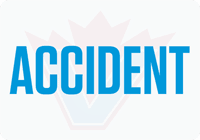ICBC customers who speak Punjabi can now discuss their claim in their language, thanks to a new dedicated Punjabi claims line that launched today.
The toll-free line will allow customers to immediately connect with a Punjabi interpreter who can help them discuss their claim with ICBC. The service is available from 8 a.m. to 8 p.m., seven days a week, at 1-866-906-6163. This is an enhancement of ICBC’s existing claims translation service and provides more streamlined access over the current process, where customers need to contact ICBC first before they can speak to an interpreter.
“British Columbia is culturally diverse and it’s great to see that ICBC has recognized the need to provide multi-language services to support our multicultural identity,” said Amrik Virk, Minister of Advanced Education and MLA for Surrey-Tynehead. “Punjabi is the most common language spoken at home by British Columbians after English, with 4.5 per cent of the total population indicating that Punjabi is their first language. The Punjabi claims line will provide this community with easier access to a service they need, while eliminating the language barrier that prevents them from feeling confident when dealing with such an important matter.”
Further enhancements to better serve customers who speak Mandarin and Cantonese will be made by 2015.
“ICBC’s Punjabi claims line is a great example of supporting the cultural and linguistic needs in our community and our province,” said Joginder Singh Ahluwalia, president and CEO, Walia Insurance Agencies Ltd. “More and more companies need to realize the value of being inclusive to all cultures and provide multi-language services that support B.C.’s diversity.”
ICBC launched the original translation service in 2010 in claim centres and through its Dial-a-Claim. The service expanded to ICBC’s driver licensing offices in 2012, and has proven to be popular. The number of callers that use the service has steadily increased year-after-year, with more than 22,000 calls made in 2012 – 21 per cent of which required a Punjabi interpreter. For claims calls alone, the number of calls requesting a Punjabi interpreter increased by approximately 53 per cent from 2011 to 2012.
ICBC’s translation service is free and offers customers language assistance over-the-phone for more than 170 languages through interpreters provided by LanguageLine Solutions.
The new Punjabi claims line is part of a larger multi-language information campaign that ICBC has launched to inform customers about the claims process when an injury is involved. The campaign is focused on dispelling myths about access to medical benefits and the settlement process. Information is available in English, Punjabi and Chinese to provide customers with easier access to the information they need.
“We’re committed to providing our customers with a better experience and that means being there for them when they need us the most,” said Mark Blucher, ICBC’s interim president and CEO. “We know there’s a lot of information out there about the claims process that’s confusing for our customers, particularly for those who are new to B.C. and whose first language isn’t English. The Punjabi claims line and our information campaign is just one way we’re reaching out to our customers to provide them with the information they’re looking for, in the language of their choice.”
ICBC has additional information available on icbc.com to serve its multicultural customers. This includes an online practice knowledge test in Punjabi and other key information in Chinese and Punjabi including how to get your driver’s licence, how to insure your vehicle and how ICBC can help you get back on the road if you have a claim. Chinese and Punjabi speaking customers can also easily find their nearest auto body shop, Glass Express shop, claim centre, driver licensing office, Autoplan broker or chiropractor in their primary language.
ICBC also provides Chinese and Punjabi versions of its “At the scene of a crash” claims card that customers can keep in their vehicles and use if necessary to help them record all of the vital information they need to gather in order to make a claim.









